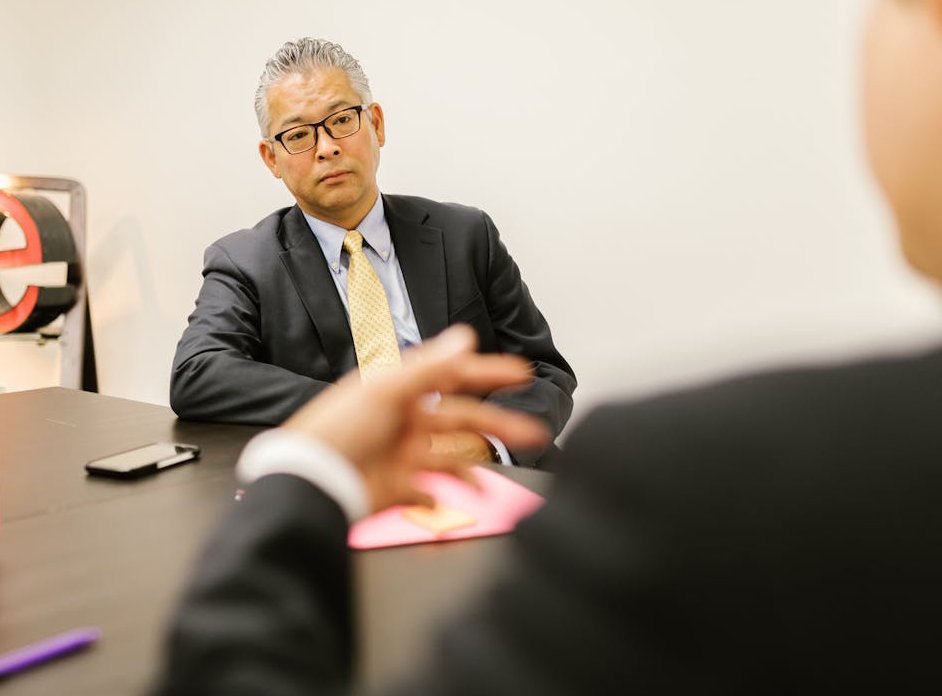Your 2025 Retirement Checklist
If you realize, "Wow, I'll be 60 this year", you'll also realize that retirement is no longer a far-off place you have yet to reach. You'll likely be retiring sometime in the next decade. But, if you're lucky enough to think 2025 could be your year, here's a retirement checklist to help you take the plunge and hang up your work hat for good.

Figure Out How Much You Have Right Now
If you've been saving diligently for 2025's retirement year, you'll likely have your money stored away in various IRAs, Roth IRAs, 401(K), and/or investments. Work out how much money you have (or will have) when you retire.
Work Out How Much Social Security You'll Be Receiving
If you've been paying diligently into your Social Security every year since you began working, you'll likely receive about $1,925 monthly (the average amount Americans receive from Social Security). Sign up for or sign into your Social Security Administration Account to figure out how much that payment will be monthly.
Work Out A Retirement Budget
Now that you have all of those figures, it's time to work out what your retirement budget will look like. If you've been budgeting all your life, this won't look different from a traditional monthly budget. The figures will reflect your retirement income.
Speak To Your Company About Pension Benefits
If your company has been topping up a pension account for you, either with a pension plan or an employer-matched savings account, speak to them about claiming those benefits upon retirement. You'll need to contact the company's HR department to do this.
Understand Your Tax Bracket
Because withdrawals from certain retirement accounts are taxed differently, you'll need to research which tax bracket you fall into. Ideally, when it comes time to withdraw, you want to end up in the 10% to 12% range.
Understand Your Different Retirement Accounts And What Their Tax Implications Are
Different types of bank accounts have different tax implications for retirees. For single individuals, if their income is less than $11,925 annually, they'll pay 10%, in between $11,925 and $48,475, they'll pay 12%. It's worth noting that Roth IRAs are tax-deferred, meaning you're only taxed once you withdraw the funds.
Decide How Much Money You'll Withdraw From Each Of Your Accounts Every Month
Because you have many different accounts to draw from, decide how much money you'll be withdrawing from each one. Withdrawing from each account should, ideally, put you in the 10% to 12% tax brackets.
Pay Off Your Debts
If you can pay off your debt, you should do so before you retire. Retiring without debt will provide you with the maximum financial freedom. You'll have more money toward your retirement goals rather than immediately losing some of that income to debts.
Pay Off Your Mortgage If Possible
You'll want to pay off your mortgage if you can before you retire, particularly if your mortgage rate is higher than what you'll earn in your savings account when you retire. However, if you're one of the lucky ones who received a fixed 2.5% mortgage, you should be able to pay that off till the cows come home with your retirement funds.
Delay Vacation Days Until After Retirement
This will depend on your company policy, but if your company pays for unused vacation days, delay taking them until after you retire. That way, you'll be able to earn that extra income.
Or, Use Up Paid Time Off Before You Retire
If your company doesn't have a policy of paying for vacation days—and instead, your PTO expires at the end of every year—then you might consider taking your 10 "vacation" days before your final work date. Retiring 10 days early, with pay—what could be better than that?
Consider Healthcare When Considering When To Retire
If you retire at 65, you're golden, as Medicare will become your health insurance provider. But, if you're considering retiring before 65, note that the federal law called COBRA may allow you to stay on your company's insurance plan for up to 18 months. However, it's expensive, averaging about $130/month for individuals or $550/month for families.
Can You Jump On Your Spouse/Partner's Insurance?
Another consideration is whether you can enroll in your spouse's or common-law insurance plan. If so, it might be better to retire before 65 if you manage the financial burden.
Is Disability Insurance Necessary?
Unless you already have a disability, you might consider whether disability insurance is necessary now that you'll be retired. It would only cover lost income, and since you won't be getting any significant "income" from wages, you can save the money you'd have otherwise spent on it.
Is Life Insurance Necessary?
Life insurance is necessary if you have dependents. Still, if you and your partner/spouse don't have any dependents and are financially stable with enough savings, you often don't need to replace your work's life insurance contributions out of your pocket.
 Photo By: Kaboompics.com, Pexels
Photo By: Kaboompics.com, Pexels
Visit Your Doctor
If you have a primary care physician, you must visit them before you retire, especially if you haven't in many years. Your health picture may have changed or could change once you reach your latter years, and it's important to be prepared for that earlier rather than later.
Visit Your Optometrist And Dentist
Getting your eyes and teeth checked before you retire is also important. Your company's employment benefits will stop on the day you retire, so get one last insured dental cleaning and eye exam!
Go For That Massage
A massage therapist is another healthcare professional you may want to consider visiting, assuming your employment benefits cover them. Everyone should have a professional massage at least once, so use those benefits before they're gone!
Think Hard About How You Want To Spend Your Retirement
Once you've had your final relaxing massage, it might be time to consider how you want to spend your retirement. Do you have the funds to travel, or do you want to stay closer to friends and family? Spend some time envisioning what you want your retirement to look like. It's much easier to do this now than on the day you retire.
Budget For Special Trips Or Purchases
Suppose you've figured out that you want to buy a certain thing as a "retirement present" to yourself or your family or maybe take a long-awaited once-in-a-lifetime vacation. In that case, it's best to budget based on your retirement income rather than your present income.
The Four Phases Of Retirement
There are four phases of retirement in general. Let's review them as they relate to our checklist.
Phase 1: Vacation Phase
This phase lasts for about the first year of your retirement. You'll most likely be sleeping in, traveling, and realizing suddenly that you don't have to go to work. Yippee! This honeymoon period can be gratifying, but you must be careful with your spending during this phase.
Phase 2: Boredom Phase
After the first year of extravagance and doing things on your proverbial bucket list, you may enter a "boredom phase," or a "what am I supposed to do with myself now?" phase. Our earlier suggestion to plan your retirement and consider what you want from the next phase of your life can mitigate this.
Phase 3: Figure Out What You Like To Do
Instead of mitigating the boredom phase, phase three should see you figuring out what you like to do and what you can do well, particularly if you've written a "Things I Want To Do In Retirement" list. Or if you've been stuck in a dead-end job you hated and are now finally free to pursue your dreams.
Phase 4: Find A Meaningful Purpose In Life
Finding a work-life balance is the key to phase four, which continues to elude many people. However, if you can reach the point in your retirement where you're content and have a meaningful purpose day to day that isn't a "job," then you'll have succeeded.
What Benefits Do You Get From Work And How Will You Replicate Them In Retirement?
We often do not consider the many non-financial benefits we receive from our jobs. Understanding pre-retirement may help you replicate these benefits (if you desire) after you retire.
A Structured Day
Sure, the structure of our day can be annoying sometimes, like waking up at 6 am to take the 6:30 am train for the 7:30 am job. But having a structured day (even in jobs with the most liberal structures) helps us develop a routine. Consider how you could structure your day once you've retired to give you that same sense of routine.
A Sense Of Identity
If you're retiring from a high-up position in your company/organization, you'll lose that title immediately upon retirement. Hopefully, you won't have wrapped up your identity in your job, but if so, you'll need to find a way to regain a sense of identity outside of your job title as just another retired person.
Social Interactions
Our coworkers can become our friends. When you retire, you must rediscover the social interactions that enriched you at work, whether at a local pool hall, sports activity, or dinners with friends and old colleagues. Retirement can be isolating; plan so that yours isn't.
A Sense Of Purpose
Even if you don't like your job, it provides a sense of purpose. You may notice that you'll lose your sense of daily purpose when you retire. This is why planning your post-retirement life is so important; there's less of a gap between purposefulness and purposelessness.
The Last Few Months And Weeks Of Your Job
Maybe you've circled the date on your calendar already, or you've just mentally prepared yourself to leave your job and begin retirement. You'll need to do a few things during the last weeks and months at your job before you can finally call it quits.
Tell The Boss
Of course, you'll need to inform your superiors of your intention to retire if you haven't done so already. On average, retirees generally accept about two months' notice. You can give as much as you want, but you need to read over your employment contract and see what it says about timelines for intentions to leave the company.
Be Prepared To Stand Your Ground When Asked To Stay
Even if you don't think you're particularly valuable to your bosses, they may still ask you to stay at your job rather than retire. They may also offer a raise or other incentives to entice you to stay. You do not have to accept anything. If you're dead-set on retiring, be prepared to say no to everything.
Let Your Office Friends Know
If it hasn't become common knowledge already, you should let your office friends know your intention to retire. They'll likely throw you a retirement party—and who doesn't like cake, right?
Transfer Your Personal Information
After retirement, you likely won't have access to your work files and/or information, so transfer any personal documentation or information off your computer to a personal device. Also, take anything with you that you want and can leave the building with.
Create Or Update A List Of Professional Contacts
Even if you hope never to need to work again, it's worth creating a list of professional contacts. It can't hurt to have options as you move into retirement, and even if you don't end up back at the same company, having a good word for you from your previous employer goes a long way.
Tell Your Family Sooner Rather Than Later
Tell your family about your retirement plans if they don't already know. Also, inform them of your plans once you retire—otherwise, they may try to make plans for you. This is your retirement, and nobody else's.
Where's The Retirement Party?
The final item on your checklist is: where is your retirement party? If your job or colleagues graciously take you out, there's nothing else to do but wait for Zero Day. Or, if you have to plan something yourself, carefully consider where you'd like your party to be! It's your final day of work, and you're ready to retire. Congratulations, you've done it!












































